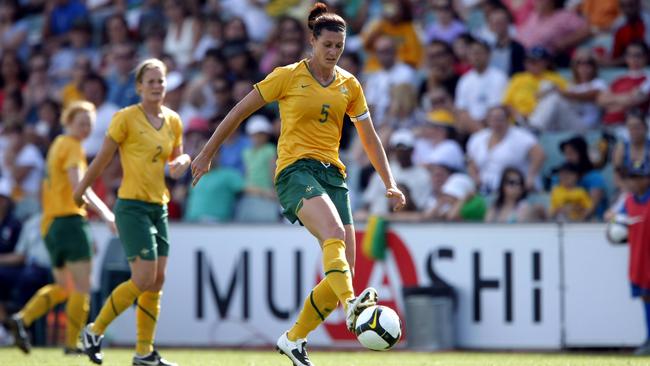World Cup to propel Matildas to the forefront
The women’s World Cup has come along way since Cheryl Salisbury’s time.

Cheryl Salisbury likes to joke that when she first appeared at a World Cup, in 1995 in Sweden against Denmark, her parents travelled to watch “and probably added 50 per cent to the crowd”.
With almost three quarters of a million tickets sold for the 2019 version, and several games already sold out, it’s no wonder the Matildas legend is so excited at the prospect of what is to come.
With all 52 games to be screened in Australia — and available free to all school children and their families via Optus Sports’ coverage — Salisbury can see untold opportunities for an exponential lift in the level of interest in and knowledge of global women’s football.
“When I look back to Sweden in 1995 there was hardly anyone in the stadium when we kicked off. To think what the crowds will be this time in France, and even what the interest will be back here — I just wish I’d had that growing up. I didn’t know other girls played football, let alone other countries,” she says.
“Realistically, we now have a team with a chance to be on the podium and get a medal.
“Normally we go into a World Cup with not much vision of other teams, not knowing much about them. This feels like we have equality of coverage.”
While SBS will show Matildas games and knockout stages live, Optus will broadcast all games in the tournament, as they did with last year’s men’s World Cup.
The Matildas have all assembled in Antalya, beginning a seven-week mission they hope will end with lifting the World Cup trophy.
Captain Sam Kerr, Clare Polkinghorne and standby forward Kyah Simon were among the latest to arrive in Turkey for their pre-tournament training camp, where coach Ante Milicic hopes to embed his squad with a game plan to win in France.
The trio played on Monday in a final in the US, when Kerr’s double helped Chicago Red Stars defeat Polkinghorne and Simon’s Houston Dash.
In Turkey, Milicic’s chief task will be micromanaging his players’ fitness and conditioning.
Players have landed in camp from all corners of the globe and in many different conditions.
Polkinghorne said there was no such thing as a perfect preparation: “The girls in Australia have been training with Future Matildas and have games every week. They’ve been working hard. The thing about club football is you can’t control your game time and a few girls have been carrying injuries. If we can have that solid block prior to the World Cup, [including] a friendly against Netherlands, I don’t think there’ll be a problem.”
The Daily Telegraph, AAP



To join the conversation, please log in. Don't have an account? Register
Join the conversation, you are commenting as Logout